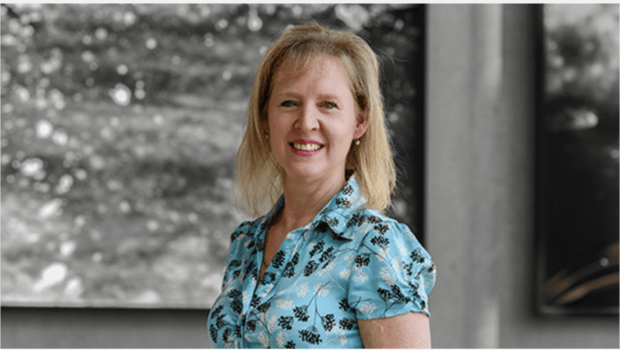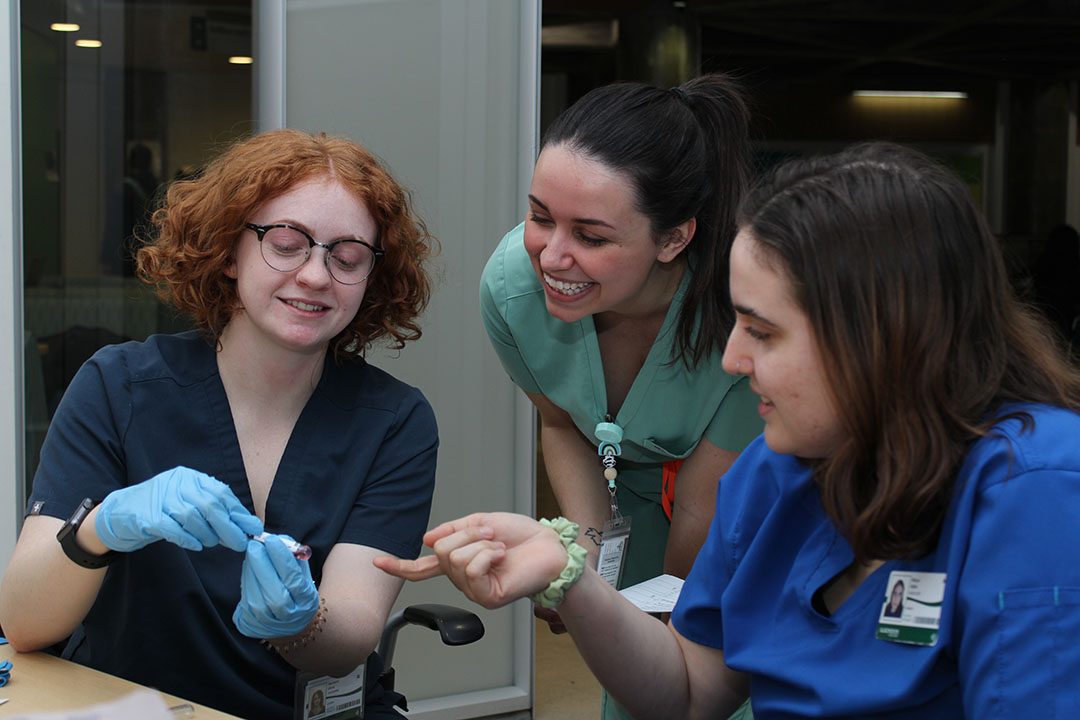Carmen Hust, the chair of the Algonquin College nursing program, couldn’t be more pleased about the return of in-person education for nursing students.
“Our faculty are very excited that students are back in class,” said Hust, sitting in her chair in a sunlit corner office in the B-building on the Woodroffe campus. “We don’t take it for granted anymore.”
During the pandemic period, it was a feat of teamwork and resilience for the faculty to make the quick change from long in-person labs and clinical practice to a mainly online learning environment.
In a visit to the campus on Feb. 10, Prime Minister Justin Trudeau expressed his gratitude for the effort that the nursing faculty and students have put into Canada’s public health sector.
“Each of you decided that you wanted to be a part of serving and helping your fellow Canadians,” said Trudeau during his speech to Algonquin College nursing students.
The pandemic, to Hust, was a reminder to be grateful for the time spent together and the skills nursing students learned during the peak of the pandemic.
“The student population that came out of COVID were very self-motivated, they had to be tech-savvy and they had to become advocates for themselves,” said Hust.
The Ontario Government is also showing their support with the release of its new “Learn and Stay Grant,” which will help provide funding to students attending “priority programs,” such as nursing and paramedic studies.
However, while nursing programs have returned to in-person learning, there are still some challenges for Ontario’s nursing students.
For instance, some upper-year students and recent graduates from nursing schools around the province have found themselves being referred to as “COVID-nurses.”
Kayla Marshall-Lewis, a fourth-year nursing student from Algonquin College is one student who has been referred to by this label by other medical professionals.
“We are being called ‘COVID-nurses’ because we are graduating with ‘less’ knowledge,” said Marshall-Lewis. “We have been expected to teach so much of it to ourselves.”
Some professors have heard about these comments and they don’t agree with them.
“Unfortunately, all students might be painted with the same brush as being COVID-nurses,” said Teri-Lynn Christie, a professor of practical nursing at Canadore College. “But in their final consolidation they need to do everything to impress those they are working with that they are still knowledgeable.”

(supplied photo)
Another challenge is that some student nurses have been told by working medical professionals to “get out while they can.”
“On several occasions, nurses at clinical would make comments to us students like ‘you should turn back now while you still can,’ or flat out, ‘why would you choose to be a nurse?’ in a confused and disapproving tone,” said Charley Truyens, now a registered nurse at the Sault Area Hospital. Truyens graduated from the University of Toronto in 2022.
The challenge of being a nursing student during the COVID period has also been difficult for many people. The mix of online learning, fewer in-person labs and less clinical experience led to some nursing students feeling unsupported, isolated and burnt out.
“I started noticing that my grades were slipping despite putting in more time and effort than I ever had in school,” said Truyens. “I think a lot of that was a result of burnout, fatigue and difficulty focusing.”
Marshall-Lewis also felt the effects of remote learning.
“Our in-person lab/clinical time was cut in half and replaced with virtual simulations, which are nothing like real hands-on experiences,” she said. “Lab was done socially distanced so we weren’t actually able to practice our skills in an appropriate setting before performing them in clinical practice.”
Many nursing professors found it challenging too. It was often difficult to give students enough support through remote learning, leading some students to step back from nursing until schools could teach in person again.
“Once we went fully integrated online, students attempted it, but we had a good portion that chose to step away until which time we were fully face-to-face again,” said Christie.
Now that nursing programs have returned to in-person learning, application rates at Algonquin College have returned to pre-pandemic levels.
“Nursing is a team sport, it is not something we do in isolation, and we need each other,” said Hust.


